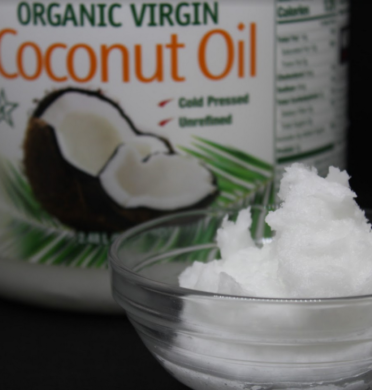Easy, Amazing Moisturizers Powerful Enough for Winter

While the calendar is trying to tell me it’s still autumn, it seems that Mother Nature has other ideas. Winter seems to be fully upon us—temps are dropping into the 20s at night, the trees have mostly shed their leaves, and my skin is drier than dry.
Now, the summers here in North Carolina are pretty humid, so I don’t really need to use a lot of moisturizer then. But winter is a different story. And, while there are definitely lotions that smell amazing, a lot of them have things in them that I’d prefer not to have seeping through my skin. But luckily, there are a lot of moisturizers that work really well that I have on hand and are completely safe to use.
If you’re like me, sometimes you like to make your own skin care products, and sometimes you’re in a hurry and just want to throw something on and be done with it. I’ve got you covered both ways, so don’t even stress. First, the easy, no-recipe-required, moisturizers:
Aloe Vera Gel
Most people know that aloe vera gel is super soothing for sunburns, but it’s also a great to use as a moisturizer. The same properties that make it so great at helping ease sunburns also help to reduce wrinkles, moisturize dry skin, and help clear up skin issues like eczema, acne, psoriasis, and more. When choosing an aloe vera gel, look for one that doesn’t include fragrances, alcohol, or paraben-based preservatives. This one is a great option!
Coconut Oil
It’s gonna sound totally obvious and a little bit boring, but one of the best moisturizers that I’ve found is organic fractionated coconut oil. The fact that it’s fractionated means that it’s liquid at room temperature, which I find more convenient than regular coconut oil when I’m in a hurry. But regular (organic) virgin coconut oil is a great DIY skin moisturizer too!
Coconut oil has been shown to have antimicrobial properties that can help protect against bacteria and fungi that can cause all sorts of different skin issues, including acne, cellulitis, and more. It also has anti-inflammatory properties, so it can soothe all sorts of chronic skin inflammation issues, including eczema, psoriasis, and more. It’s been shown to significantly improve skin hydration (hello, winter moisturizer!). It can even help heal wounds and potentially help prevent infection. So yeah, coconut oil, all by itself, is a great all-around moisturizer.
DIY Skin Moisturizer
What if you want to make a DIY skin moisturizer that’s a little fancier than just plain old aloe vera or coconut oil? Well, why not combine the two (plus a few other ingredients) to get a non-greasy moisturizer that’s perfect for those dry winter days (or any time of the year)?
Materials
- 1 cup aloe gel (Note: If it’s not as thick as you’d like, you may need to add an emulsifier and refrigerate it.)
- 4 tbsp fractionated coconut oil
- 1 tsp vitamin E oil
- 15 drops essential oil (I love lavender, but you could use any essential oil you’d like)
- Electric hand mixer or whisk
- Mason jar or pump bottle to store the moisturizer
Instructions
- Allow all ingredients to come to room temperature, if they aren’t already.
- Combine all the ingredients into a large mixing bowl.
- Using your mixer, beat all the ingredients for about 1 minute. You can also whisk it if you don’t have an electric mixer. Either way, you want your mixture to have the same consistency as lotion.
- Transfer the moisturizer to the mason jar or pump bottle. Store in a dark, cool place for up to 3 months. The moisturizer may also be refrigerated, if you wish.
Click here for more resources and information about this topic.
Here is a round-up of products mentioned in the article for your shopping convenience!
- Pure aloe vera gel
- Fractionated coconut oil
- Vitamin E oil
- Lavender essential oil
- Electric hand mixer
- Whisk
- Mason jars
- Pump bottles
You can click the buttons below to go back to the Winter Seasonal articles, or you can venture back to our other Seasonal articles, DIY Seasonal recipes or the Seasonal supplies and products we love!
Disclaimer: All information contained herein is intended for educational purposes only. It is not provided to diagnose, prevent, or treat any disease, illness, or injured condition for any human or animal, and Mother Nature’s Truths, as well as the author(s), contributor(s), publishers, and owners accept no responsibility for such use. Anyone suffering from any disease, illness, or injury, or who has an animal suffering from such, should consult with their physician or veterinarian. The statements herein have not been evaluated by the Food and Drug Administration.